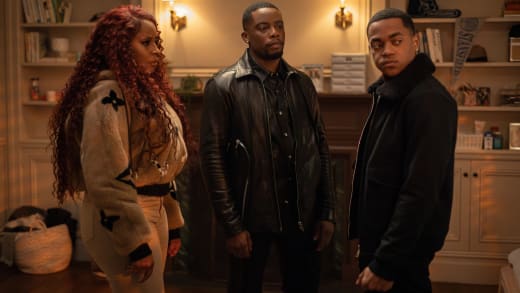At the height of The Office’s run on Netflix, a Bustle article exploring why people are rewatching the Office posited that people sometimes need to turn their brains off with comfort viewing. The psychological benefits can be enough to get people out of suicidal-level despair.
I tend to think that every time we plop down in front of a TV after a hard day, we’re all confronted with a choice of whether we want comfort or to be challenged and moved at a more rewarding level.
But with Night Court — purest vanilla comfort food there’s ever been — there’s an art to doing mindless popcorn comedy.
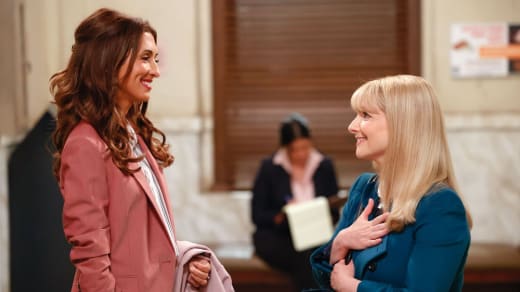
This show will never be a great comedy at a dialogue level because the jokes are too rapid-fire.
Ordinarily, that’s a good thing, but with Night Court, it’s like an overeager teacher’s pet that rockets their hands up in the air to answer a question because they want the attention of getting the correct answer in front of the whole class.
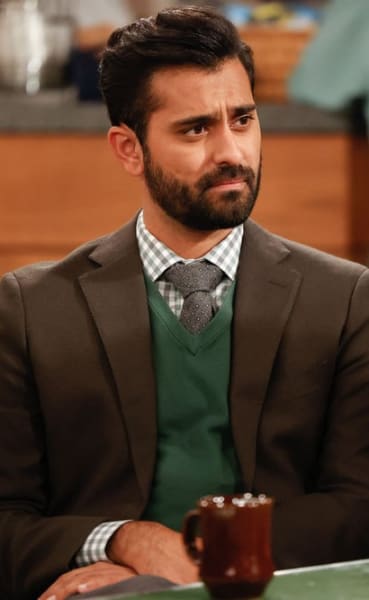
I have almost no experience in screenwriting, and I could probably write a Night Court spec script because the formulas are so easy.
For instance, establish one thing in the dialogue and then have a character contradict that through action. Here’s an example: Character A says he’s not afraid of mice as he walks out a door. Cut to a screech in the distance.
That generally extends to well-formed characters who are different than how they present themselves (see Michael from The Office or Eleanor on The Good Place).
Night Court’s high jokes-per-minute mandate, however, requires characters (particularly Olivia) to look mentally deranged for the sake of a joke.
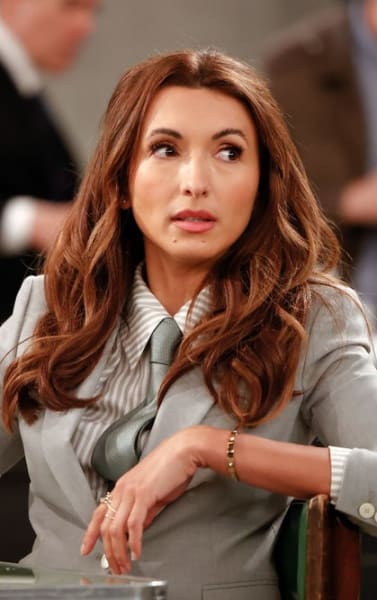
Then some jokes just feel off. A recent episode featured a joke so screechingly wrong that I had to rewind and capture this in text:
Judge Stone asks her coworkers if she recognizes a podcaster, and the security officer Gergs, says, “I’m not a fan of podcasts. I’m more of an audiobook gal. I’m in the middle of Matthew McConaughey’s ‘Tomorrow I’m Gonna Hit You with an All Rise All Rise All Rise.'”
You know those jokes from elementary school with a question-and-answer format like “What do you get when you ____?” In this case, the elementary school version would be, “What would Matthew McConaughey say if he were a judge?”
But that line doesn’t make sense because Lacretta is discussing a book McConaughey supposedly authored, unaware that it would be referenced in a courtroom.
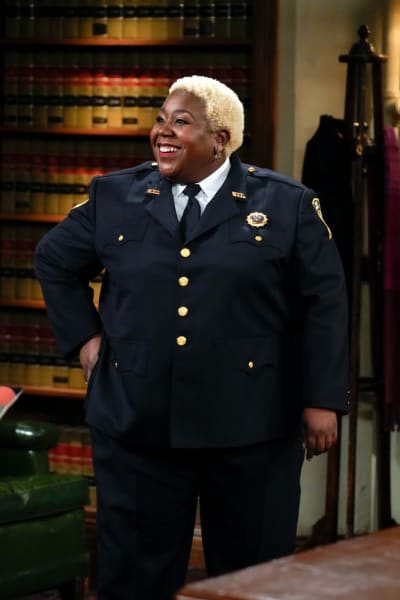
Was there a writer in that room sitting on that joke (possibly for nine years, when that catchphrase first entered into pop culture) through the first eight episodes and just decided he HAD to get it in, even if it made no sense?
Poor Lacretta suffers the second worst line of dialogue in the episode: “I’ve never seen anyone so thirsty to get on a podcast, and I have several friends whose families went missing after their families joined a cult.”
In comedy writer’s rooms (particularly on late-night shows), a writer’s elementary assignment will typically be assigned to “punch up a joke,” where they write several different versions of the punch line (the italicized part).
Frequently, the late-night writers bank up these punch lines in a pinch because they can be interchangeable (Conan O’Brien’s writers did this often with the same dozen punch-worthy celebrities).
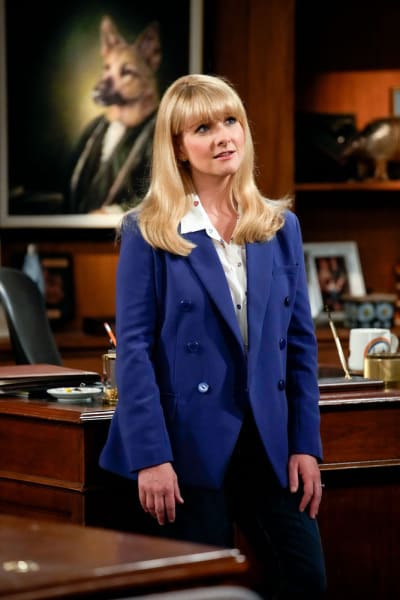
The punchline is so unrelated to the setup here that it feels like a placeholder for an actual joke.
At the same time, the show is filled with actual winners in the joke department.
When Gerges suggests that Olivia (India de Beaufort) and Neil (Kapil Talwakar) get the podcaster’s attention through a spicy romance, Olivia responds, “Neil, we’re in a relationship, Pretty Woman rules. There’ll be no kissing, and it will mostly be about me hanging out with Hector Elizondo.”
It is a highly-specific reference that dates back further than Matthew McConaughey’s press circuit tour of the 2013 Academy Awards, but specific can be gold when it’s employed with thought for the context (see John Oliver).
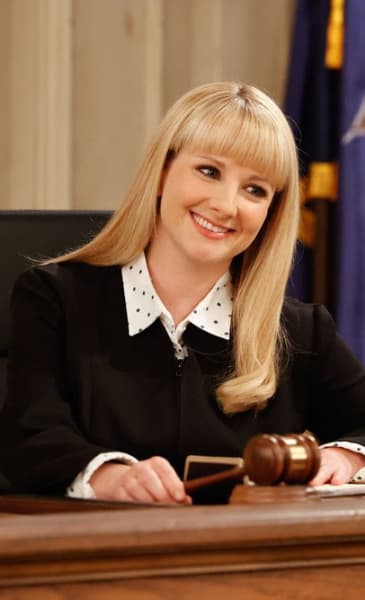
The show’s style of comedy could best be described as anarchic. Best exemplified by the Marx Brothers, this is a style without an established thru-line, and the humor comes frequently and from unpredictable sources.
So far, we’ve had Tara Lapinski and Johnny Weir as guest stars, a giant horse, the court staff playing Bingo, and a dispute between two vampires.
Perhaps in this spirit, the surprises and jokes come so fast that one can easily take the good and bad jokes as a pair.
More than that, Night Court (and, to a larger extent, laugh track sitcoms in general) has a rhythm that can be entrancing. The characters are generally static and dependable.
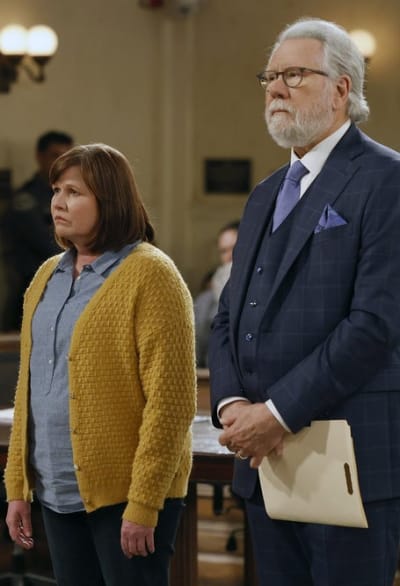
In interviews that executive producer and star Melissa Rauch gave during the promotional rounds, she spoke heavily of her nostalgia for the show as she watched it growing up with family.
In an interview with CNN, she said, “sitting on my couch and watching shows that I loved as a kid with my parents and my grandmother, it reminds (me) of those people, even if they’re not here with you anymore. It’s almost like a little time machine back to that part of your life.”
Melissa Rauch isn’t selling the audience on her own dead relatives here. She’s speaking of nostalgia in the same mode of familiarity as people who watch The Office over and over.
The irony is that this earlier era that Rauch wants to harken back to is one of jokes that were less sophisticated by modern standards. At the same time, that doesn’t take away from our nostalgia.
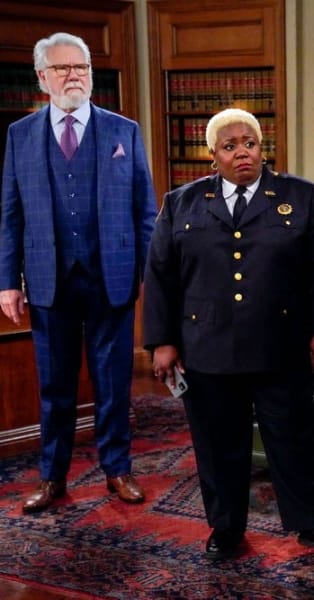
Particularly with the overlap of John Larroquette as Dan Fielding, the show seems to work because this truly does capture an earlier era of comedy like a time capsule.
More than that, the cast does an excellent job of committing to this material, and they all seem to be on the same wavelength as to what the show represents.
As a result, the jokes don’t always land, but it’s hard to imagine an environment where they’re delivered with such flair and spirit.
Night Court continues Tuesdays at 8 p.m. on NBC.
Orrin Konheim is a staff writer for TV Fanatic. Follow him on Twitter and his personal blog at Medium.


























































![Mason Ramsey – Twang [Official Music Video] Mason Ramsey – Twang [Official Music Video]](https://i.ytimg.com/vi/xwe8F_AhLY0/maxresdefault.jpg)














